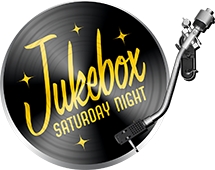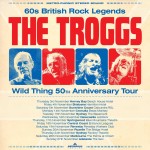What Makes Kristy Marlana Wallace A Legendary Punk Rock Icon?
Kristy Marlana Wallace, also known as Poison Ivy Rorschach, co-founded The Cramps and revolutionised the music scene as an American guitarist and songwriter. This Kristy Marlana Wallace profile is here to highlight her career achievements.
Join us as we explore more interesting facts about the legacy of a true punk rock icon and discover how her unique sound and bold stage presence have inspired musicians today.
Rock ‘n’ roll rundown
Her history
Born on February 20, 1953, in Sacramento, California, Kristy Marlana Wallace developed an early interest in music, influenced heavily by the rock and roll records from her parents’ collection. Her journey from a university student studying art in Sacramento to becoming Poison Ivy, co-founder of The Cramps, is a testament to her passion and determination.
She met Lux Interior, her partner in both music and life, at college, and they bonded over their shared love for obscure records and 1950s kitsch culture. This connection sparked a romantic relationship and led to the formation of one of punk’s most iconic bands.
The Cramps’ revolutionary debut
Kristy Marlana Wallace and Lux Interior ignited a musical transformation with their band, The Cramps. Their debut album blended punk rock with rockabilly, birthing the genre of psychobilly and setting a new course in music history. This album wasn’t just a collection of songs; it was a cultural milestone that earned a spot on every seventies jukebox and cultivated a devoted following, heralding a new era in music.
They’re celebrated for transforming concerts into electrifying punk rock theatre. Known for their dynamic stage presence, particularly Poison Ivy’s, these performances redefined the live music experience and cemented their professional journey in music history.
Signature strums and songs
The evolution of Poison Ivy’s guitar technique
Her technique seamlessly merged punk’s raw energy with rockabilly’s melodic rhythms. Her approach often involved using vintage guitars, which contributed to the distinct, gritty sound that defined The Cramps.
Notable for her use of the Gretsch 6120 guitar, her technique included a mix of fast-paced strumming and intricate, melodic riffs. These songs showcase her ability to create rhythmic, catchy hooks that are simultaneously aggressive and danceable, a rarity in punk rock guitar work.
Her performance at the 1979 Napa State Mental Hospital stands out. Her raw, magnetic guitar playing captivated the audience and set a benchmark in punk performance art.
Influence and legacy
Influence on other musicians
She has profoundly influenced a diverse array of artists, from punk to indie. Her unique approach to music and performance has led many guitarists to adopt a more direct and visceral style of musical expression. Indie rock musicians have cited her use of vintage equipment and unconventional song structures as key inspirations in their own work.
Wallace’s fearless stage presence and ability to blend genres encouraged artists to experiment with their sound and performance styles. Many contemporary guitarists also credit her with pushing the boundaries of what could be achieved with punk rock guitar. Her legacy lives on as new generations of musicians continue to draw ideas from her innovative techniques and bold musical ethos.
Her role in feminism and music
In the male-dominated punk scene of the 1970s and 1980s, Kristy Marlana Wallace carved a niche for herself and became a symbol of female empowerment. Beyond her stage presence, Wallace spoke openly about the challenges and stereotypes women faced in music, encouraging more women to pick up instruments and join bands.
Her commitment to feminism was not just in her words but also in her actions; she often collaborated with up-and-coming female musicians and supported female-fronted bands by offering them opening slots at The Cramps’ shows.
Wallace’s influence extended into her lyrical content, where she often flipped gender norms and portrayed women as powerful, assertive characters, which was groundbreaking at the time and contributed significantly to the feminist discourse within the punk community.
Frequently Asked Questions (FAQ)
What bands has Kristy Marlana Wallace been a part of?
Kristy Marlana Wallace, co-founded The Cramps, a seminal band in the punk-rockabilly fusion genre. Her involvement with The Cramps spans their entire career, from their formation in the early 1970s until their disbandment in 2009.
What are some popular songs by Kristy Marlana Wallace?
Among the most celebrated tracks by Kristy Marlana Wallace are ‘Bikini girls with machine guns’ and ‘Human fly’. These songs both highlight her innovative guitar riffs and also embody the quintessential psychobilly style that The Cramps popularised.
How has Kristy Marlana Wallace influenced the industry?
Kristy Marlana Wallace, through her groundbreaking work with The Cramps, significantly shaped the musical landscape of R’n’R Heaven. Her pioneering guitar techniques and her fearless approach to performance have left an indelible mark on the industry, influencing musicians everywhere, which is why people still want to read through a Kristy Marlana Wallace bio to this day.
About Jukebox Saturday Night
Jukebox Saturday Night is the ultimate trip down Rock and Pop Music’s Memory Lane.
Our program not only celebrates classics by artists like Jon English and Billy Thorpe and the Aztecs, but also dives into questions such as ‘What happened to The Beatles?’ and ‘How old is Pat Benatar?’
Every episode is crafted with authenticity and a heartfelt commitment to our listeners. We play many never-before-seen music video clips from the 1950s, 60s, 70s and 80s that were previously only ‘heard’ on radio.
Jukebox Saturday Night airs an hour-long program on Foxtel, Aurora Channel 173, from 7:30 p.m. to 8:30 p.m. every Saturday night. For those out rocking on Saturdays, catch the encore presentations on Sunday nights at 9 p.m. and Tuesday nights at 9:30 p.m.
It’s a light-hearted show that never takes itself too seriously, celebrating the artists, bands, memorable moments and record companies of an era when music was played on real instruments. Our fans even help us develop the programming as we collate a library of all their requests! If your song gets played, we’ll often credit you on the show.
So, tune in on Saturday nights, where we’ll take you on a magical carpet ride back in time, where you can reminisce about the wealth of fond memories and relive all the music and nostalgia of your youth. Because, as we like to say at Jukebox Saturday Night, you’re never too old to rock n roll!
Join us as we continue to celebrate and keep real rock n roll music alive, bigger and better than ever.



